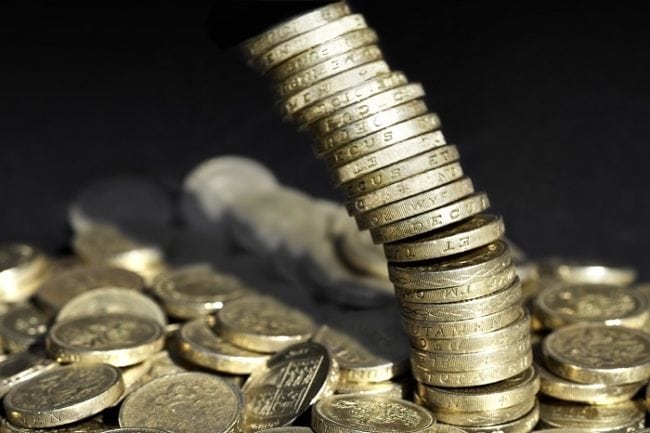November’s 3.1% CPI rate was the highest since March 2012, but some experts now predict the rate of inflation to fall back to the government’s 2% target over the coming months. December’s fall is the first time inflation has declined since June last year.
According to the Office for National Statistics (ONS), December’s fall was mainly the result of air fares and a seasonal decline in the prices of a range of recreational goods, particularly games and toys. While air fares rose sharply last month, as is usually the case, the ONS said it had a smaller impact than at the same point in 2016.
So has inflation peaked?
While the ONS said it was too early to tell if inflation has peaked at 3.1%, Hargreaves Lansdown’s senior economist Ben Brettell, is expecting the rate to fall in the next year.
“Inflation’s been a hot topic since the Brexit vote caused a sharp drop in sterling 18 months ago,” he said. “But logic has always dictated that once the effect of the weaker pound had percolated into the real economy, it should then start to drop out of the year-on-year calculations 12 months later.
“In January last year consumer price inflation stood at just 1.8%, but rose to what now looks like a peak of 3.1% in November. It now seems likely we’ll see the rate steadily fall back towards the 2% target over the next year or so.”
Matthew Brittain, investment analyst at wealth manager Sanlam UK, also expects inflation to fall back in the coming months, bringing it into line with global averages.
He said: “Despite the modest fall, inflation continues to be way beyond the Bank of England’s mandated target of 2%. While we believe it is likely to remain like this in the short-to-medium term, we do not believe it cause for significant concern.
“Today’s inflation figure simply reflects the fact that businesses that sell imported goods are passing on higher import prices – brought about by the fall in sterling – to their customers. Today, sterling is trading at its highest level since the EU Referendum in June 2016 and has made up two thirds of the value it lost in the immediate aftermath of the vote. Against this backdrop, our expectation is for inflation to fall back to the 2% target over the coming months.”
Is another interest rate rise on the cards?
If inflation does remain stubbornly beyond 2%, Brittain said the Bank of England may be forced to play its trump card of increasing interest rates to help bring it back in line.
“More worrying from our point of view is the continuing stagnation of wages, with increases tending to be well below the rate of inflation,” he said. “This means that disposable incomes are in decline, forcing people to reduce their savings or take on more debt to maintain their standard of living.”
Brettell said if you strip out the Brexit noise, the UK’s underlying economic situation doesn’t look materially different from the rest of the developed world.
“Big themes like an ageing demographic and the rise of disruptive technologies are exerting downward pressure on prices,” he said. “I see no reason why UK inflation won’t gradually return to the very low levels which persist among our developed-world peers.
“All this has implications for interest rates. Given the continued headwind posed by Brexit uncertainty, I don’t see why the Bank of England would rush to raise rates again this year. I see last year’s quarter point move as more of a tacit admission that the cut to 0.25% was unnecessary in the first place, rather than the start of a sustained upwards trend. I’d be somewhat surprised if rates were higher than 0.75% by the end of the year.”










